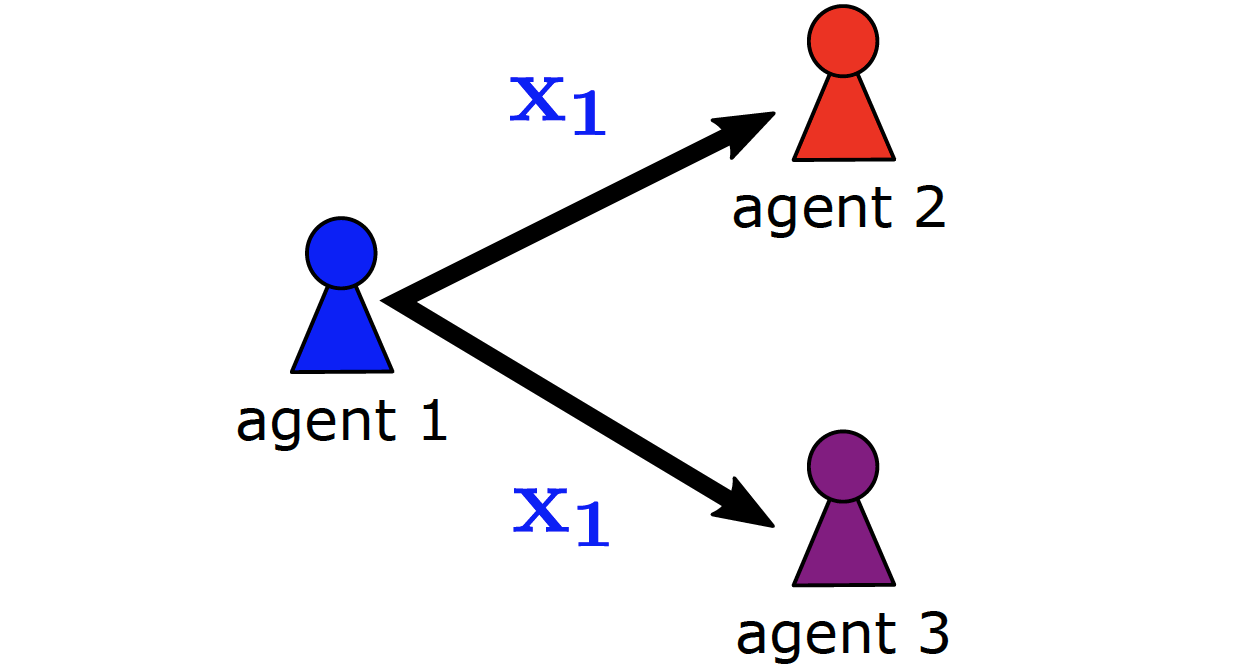State uncertainty poses a major challenge for decentralized coordination but is largely neglected in state-of-the-art research due to a strong focus on state-based centralized training for decentralized execution (CTDE) and benchmarks that lack sufficient stochasticity like StarCraft Multi-Agent Challenge (SMAC). In this paper, we propose Attention-based Embeddings of Recurrence In multi-Agent Learning (AERIAL) to approximate value functions under agent-wise state uncertainty. AERIAL replaces the true state with a learned representation of multi-agent recurrence, considering more accurate information about decentralized agent decisions than state-based CTDE. We then introduce MessySMAC, a modified version of SMAC with stochastic observations and higher variance in initial states, to provide a more general and configurable benchmark regarding state uncertainty. We evaluate AERIAL in Dec-Tiger as well as in a variety of SMAC and MessySMAC maps, and compare the results with state-based CTDE. Furthermore, we evaluate the robustness of AERIAL and state-based CTDE against various state uncertainty configurations in MessySMAC.
@inproceedings{ phanAAMAS23,
author = "Thomy Phan and Fabian Ritz and Jonas Nüßlein and Michael Kölle and Thomas Gabor and Claudia Linnhoff-Popien",
title = "Attention-Based Recurrency for Multi-Agent Reinforcement Learning under State Uncertainty",
year = "2023",
abstract = "State uncertainty poses a major challenge for decentralized coordination but is largely neglected in state-of-the-art research due to a strong focus on state-based centralized training for decentralized execution (CTDE) and benchmarks that lack sufficient stochasticity like StarCraft Multi-Agent Challenge (SMAC). In this paper, we propose Attention-based Embeddings of Recurrence In multi-Agent Learning (AERIAL) to approximate value functions under agent-wise state uncertainty. AERIAL replaces the true state with a learned representation of multi-agent recurrence, considering more accurate information about decentralized agent decisions than state-based CTDE. We then introduce MessySMAC, a modified version of SMAC with stochastic observations and higher variance in initial states, to provide a more general and configurable benchmark regarding state uncertainty. We evaluate AERIAL in Dec-Tiger as well as in a variety of SMAC and MessySMAC maps, and compare the results with state-based CTDE. Furthermore, we evaluate the robustness of AERIAL and state-based CTDE against various state uncertainty configurations in MessySMAC.",
url = "https://thomyphan.github.io/files/2023-aamas-preprint.pdf",
eprint = "https://thomyphan.github.io/files/2023-aamas-preprint.pdf",
location = "London, United Kingdom",
publisher = "International Foundation for Autonomous Agents and Multiagent Systems",
booktitle = "Extended Abstracts of the 22nd International Conference on Autonomous Agents and MultiAgent Systems",
pages = "2839--2841",
keywords = "recurrence, state uncertainty, multi-agent learning, dec-pomdp",
doi = "https://dl.acm.org/doi/abs/10.5555/3545946.3599096"
}
Related Articles
- M. Koelle et al., “Multi-Agent Quantum Reinforcement Learning using Evolutionary Optimization, ICAART 2024
- T. Phan et al., “Confidence-Based Curriculum Learning for Multi-Agent Path Finding”, AAMAS 2024
- P. Altmann et al., “Challenges for Reinforcement Learning in Quantum Computing”, AAMAS 2024
- T. Phan et al., “Attention-Based Recurrence for Multi-Agent Reinforcement Learning under Stochastic Partial Observability”, ICML 2023 (extended version)
- T. Phan et al., “VAST: Value Function Factorization with Variable Agent Sub-Teams”, NeurIPS 2021
- T. Phan, “Emergence and Resilience in Multi-Agent Reinforcement Learning”, PhD Thesis
Relevant Research Areas

